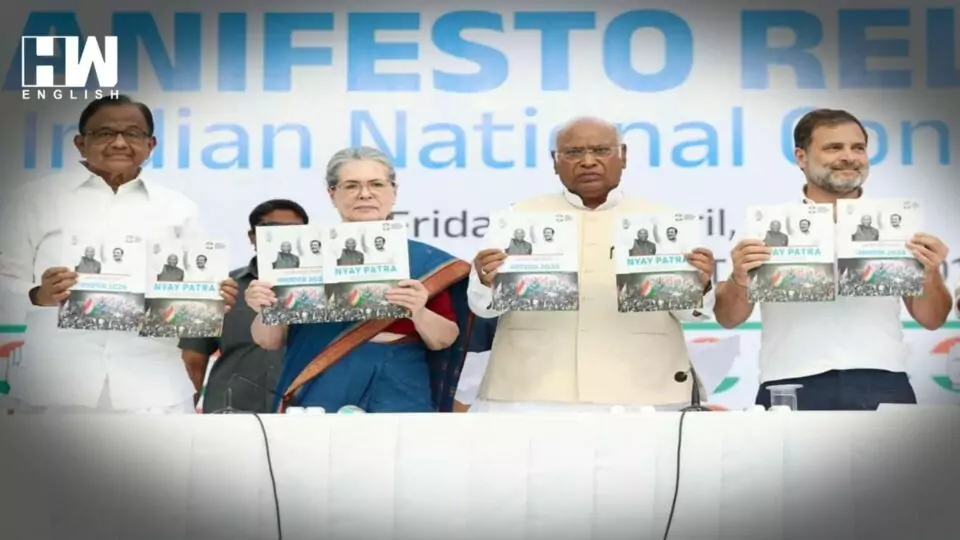Ahead of the highly anticipated Lok Sabha elections, the Congress party has released its comprehensive manifesto with a strong focus on social justice and empowerment across five key areas. Dubbed the “Paanch Nyay” or “Five Pillars of Justice”, the manifesto outlines the party’s promises to address caste discrimination, provide financial assistance to women and farmers, protect worker rights, and uplift minorities if elected to power.
Key Promises in the Congress Manifesto:
Caste Census and Reservations:
– Conduct a nationwide socio-economic caste census to gather comprehensive data on castes, sub-castes and their living conditions
– Pass a constitutional amendment to raise the 50% cap on reservations for Scheduled Castes, Scheduled Tribes and Other Backward Classes
– Implement 10% reservation in jobs and education for Economically Weaker Sections without discrimination
Employment and Education:
– Fill all existing backlog vacancies reserved for marginalized groups within one year
– Abolish contractual government jobs and regularize such positions
– Provide one-year apprenticeships to graduates and diploma holders under 25 through a “Right to Apprenticeship Act”
– Double scholarship funds for SC, ST and OBC students, especially for higher studies
– Establish a network of residential schools for underprivileged students from these communities
Financial Assistance:
– Launch the “Mahalakshmi” scheme to provide ₹1 lakh per year as unconditional cash transfer to every poor Indian family
– Increase institutional credit access for SCs and STs to build homes, start businesses and purchase assets
Minority Rights:
– Uphold constitutional rights and freedoms of religious and linguistic minorities
– Restore the Maulana Azad scholarships for study abroad
– Ensure fair share of opportunities for minorities in education, employment, contracts and more
– Respect personal laws and choice of dress, food and language
With its comprehensive social justice agenda, the Congress manifesto appears aimed at consolidating the party’s traditional vote banks of Dalits, Adivasis, OBCs and religious minorities. However, the feasibility and timeline of implementing some of these ambitious promises will likely be scrutinized in the run-up to the high-stakes polls. Nevertheless, the manifesto signifies the party’s intent to position itself as the champion of the marginalized if elected to govern.
Also Read: “We’ll Meet Soon Outside”: Manish Sisodia’s Message From Tihar Jail
As an independent media platform, we do not take advertisements from governments and corporate houses. It is you, our readers, who have supported us on our journey to do honest and unbiased journalism. Please contribute, so that we can continue to do the same in future.

